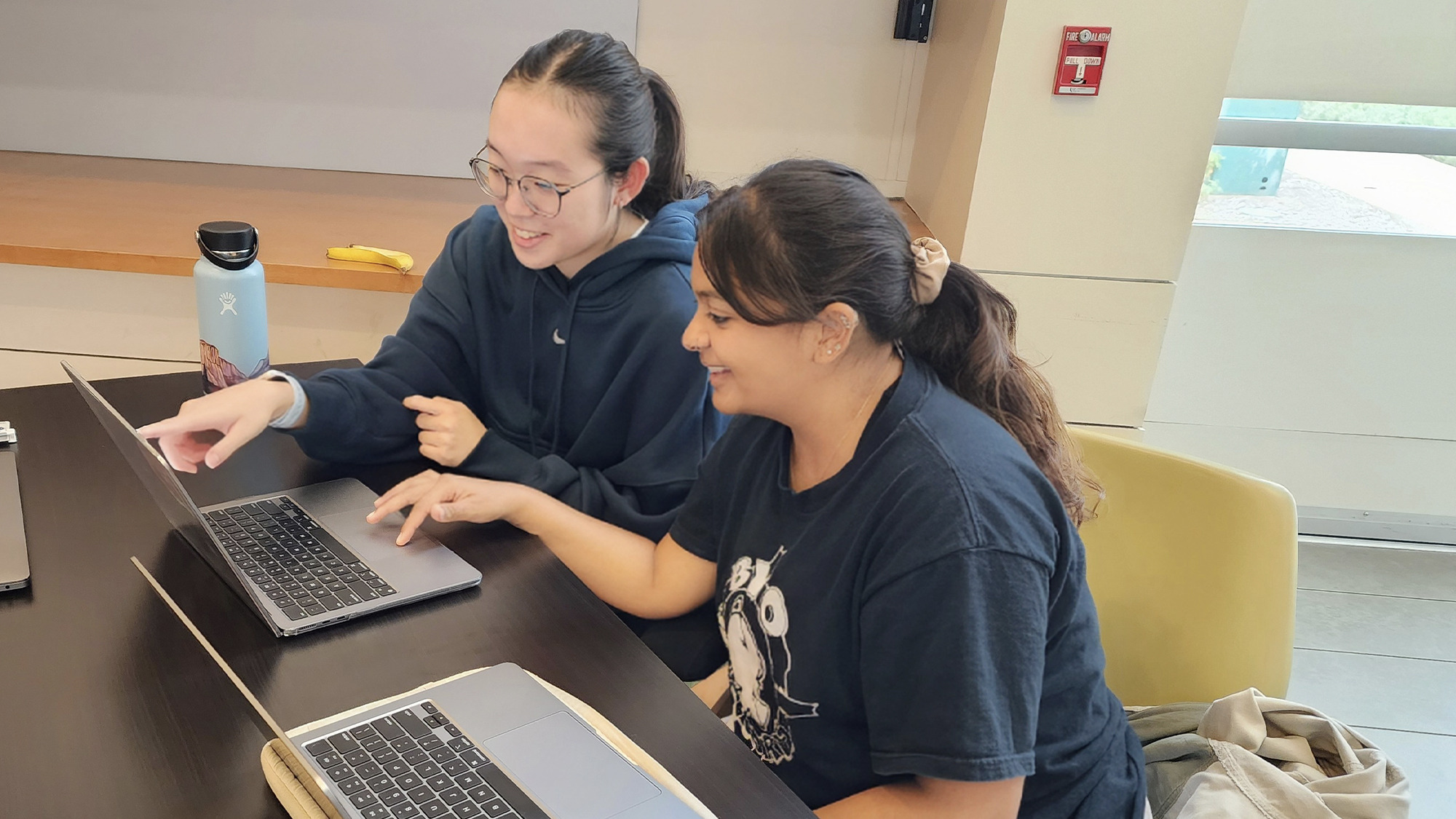ECCO Hackweek 2024
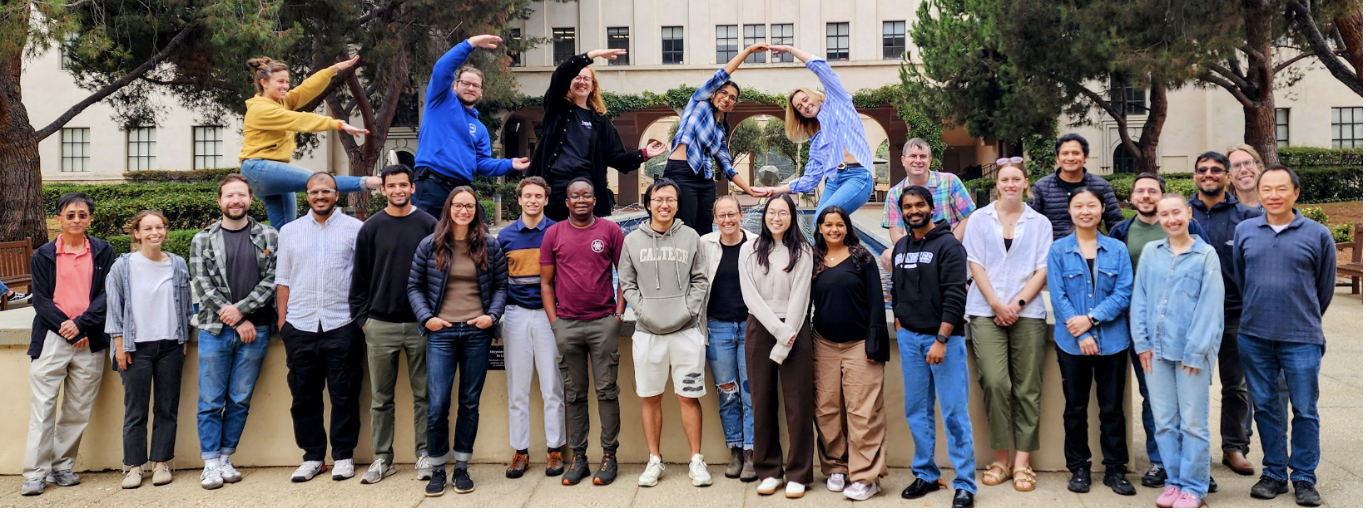
Caltech Keck Institute for Space Studies
October 14-18, 2024
Participants learned how to access and utilize ECCO V4 global ocean and sea-ice state estimates for various ocean and climate analyses. Instructors introduced participants to a Python library (ecco_v4_py) and a set of Python Jupyter Notebook Tutorials specifically designed for ECCO data analysis, enabling them to perform sophisticated evaluations and visualizations. They worked on team projects that focused on different kinds of analysis of ECCO estimates, including comparisons with data. Archive of overview presentations >>
Drifters
We learned the basics of git and Julia, mapped particle tracking experiments. We plotted Lagrangian particle tracking starting from 6° S across the Atlantic for 250 days.
Project RepositoryTeam Discussion
Project Poster: EH24-Drifters_Poster.pdf

Exploring Sensitivity Patterns and RESponses in the Southern Ocean (ESPRESSO)
Our goal was to replicate previous results using the adjoint from EMU and ensure we can attribute variability in the Drake Passage transport to recognizable patterns of primarily zonal wind stress.
Project RepositoryTeam Discussion
Project Poster: EH24_ESPRESSO_Final_Poster.pdf
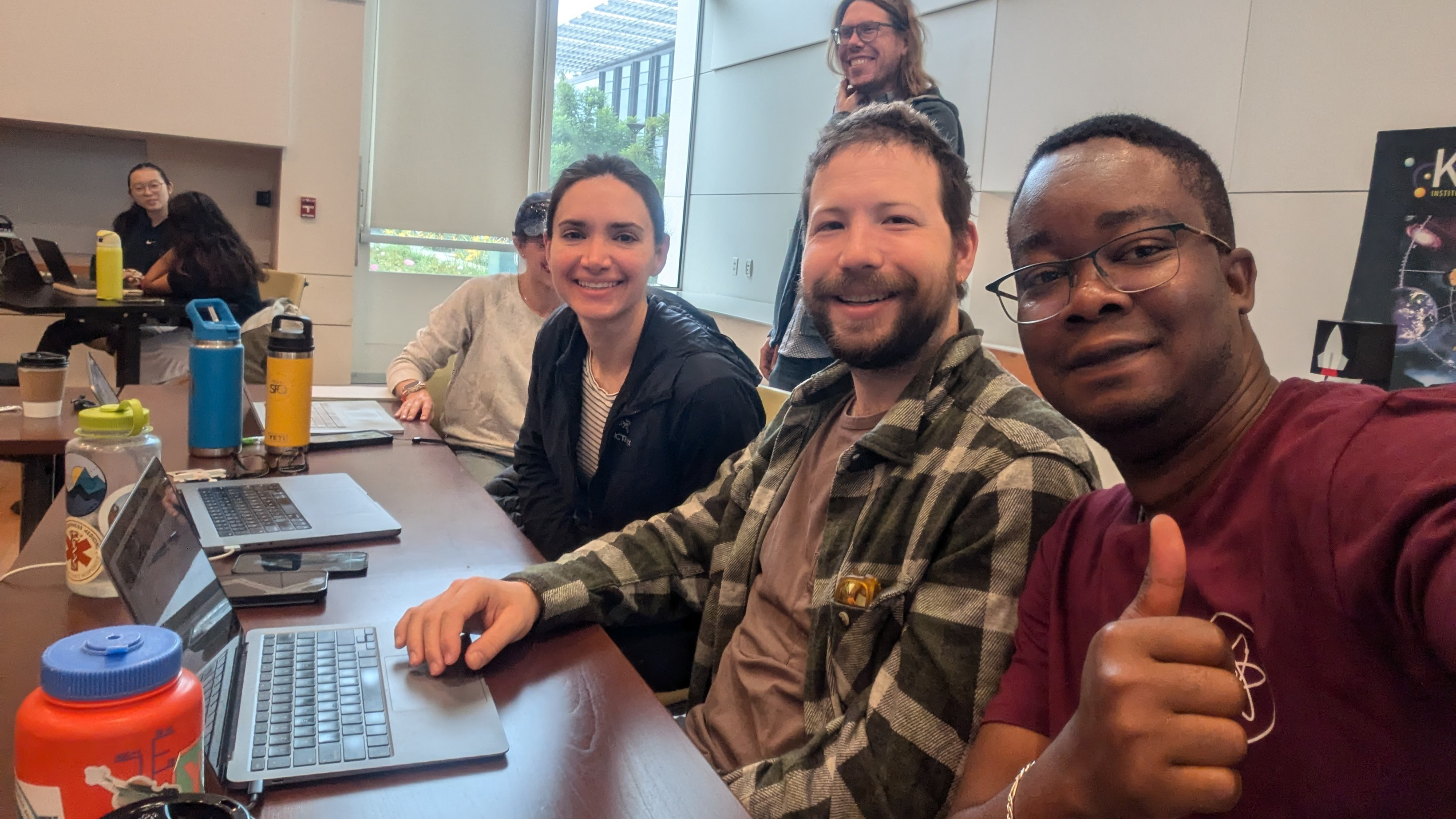
Gulf of Mexico (GOM)
Each summer in the Gulf of Mexico, a hypoxic zone develops. It is imperative to gain a mechanistic understanding of the drivers of interannual variability. ECCO-Darwin provides a wonderful opportunity to study these mechanisms.
Project RepositoryTeam Discussion
Project Poster: EH24-GoM_Poster.pdf
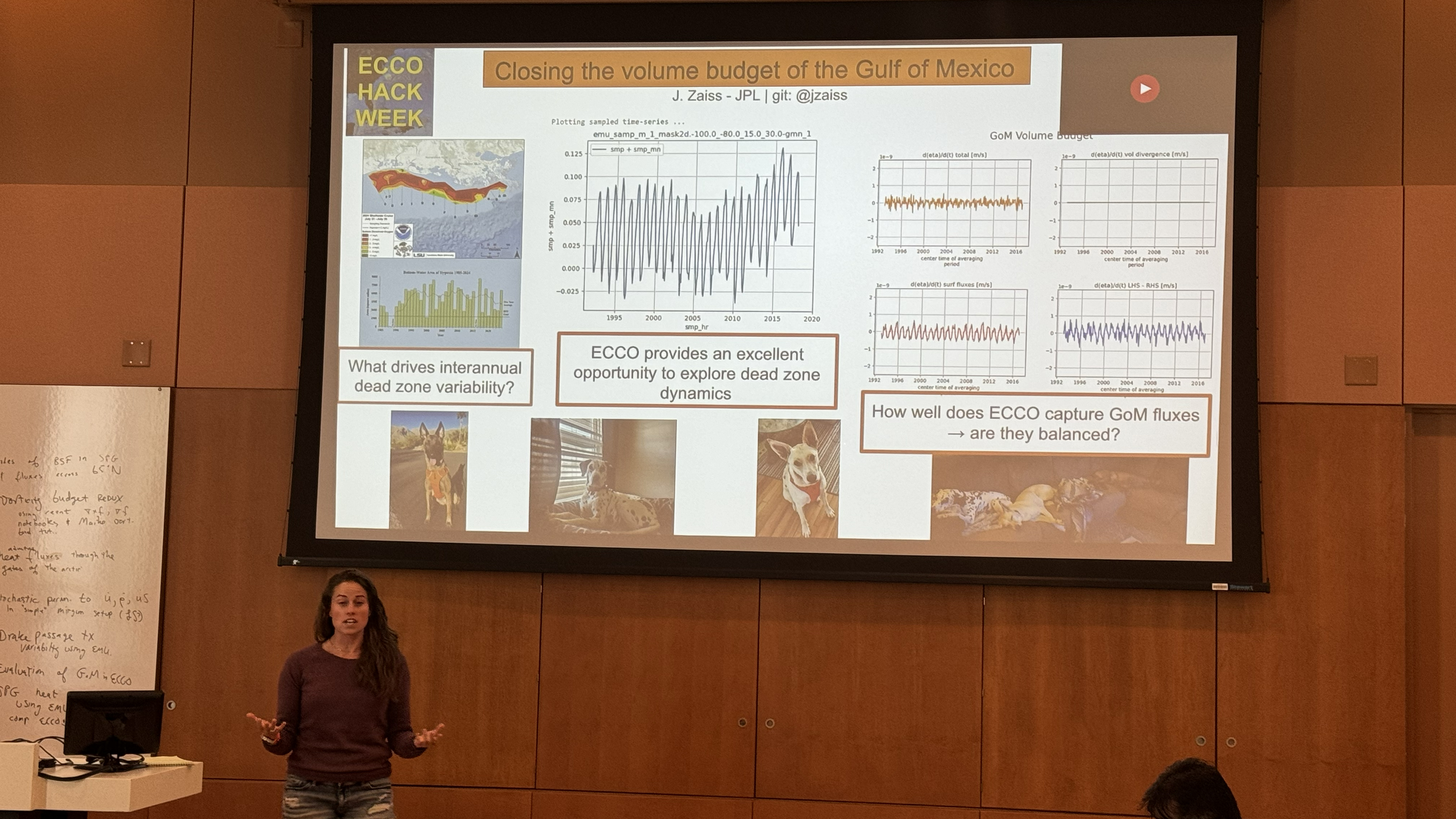
Processors-LLC
Our goal was to produce a new Python package to preprocess profiles and obsfit data. We also created Jupyter notebooks demonstrating different uses of the package, examining different routines within the package.
Project RepositoryTeam Discussion
Project Poster: EH24_Processors_LLC_Poster.png
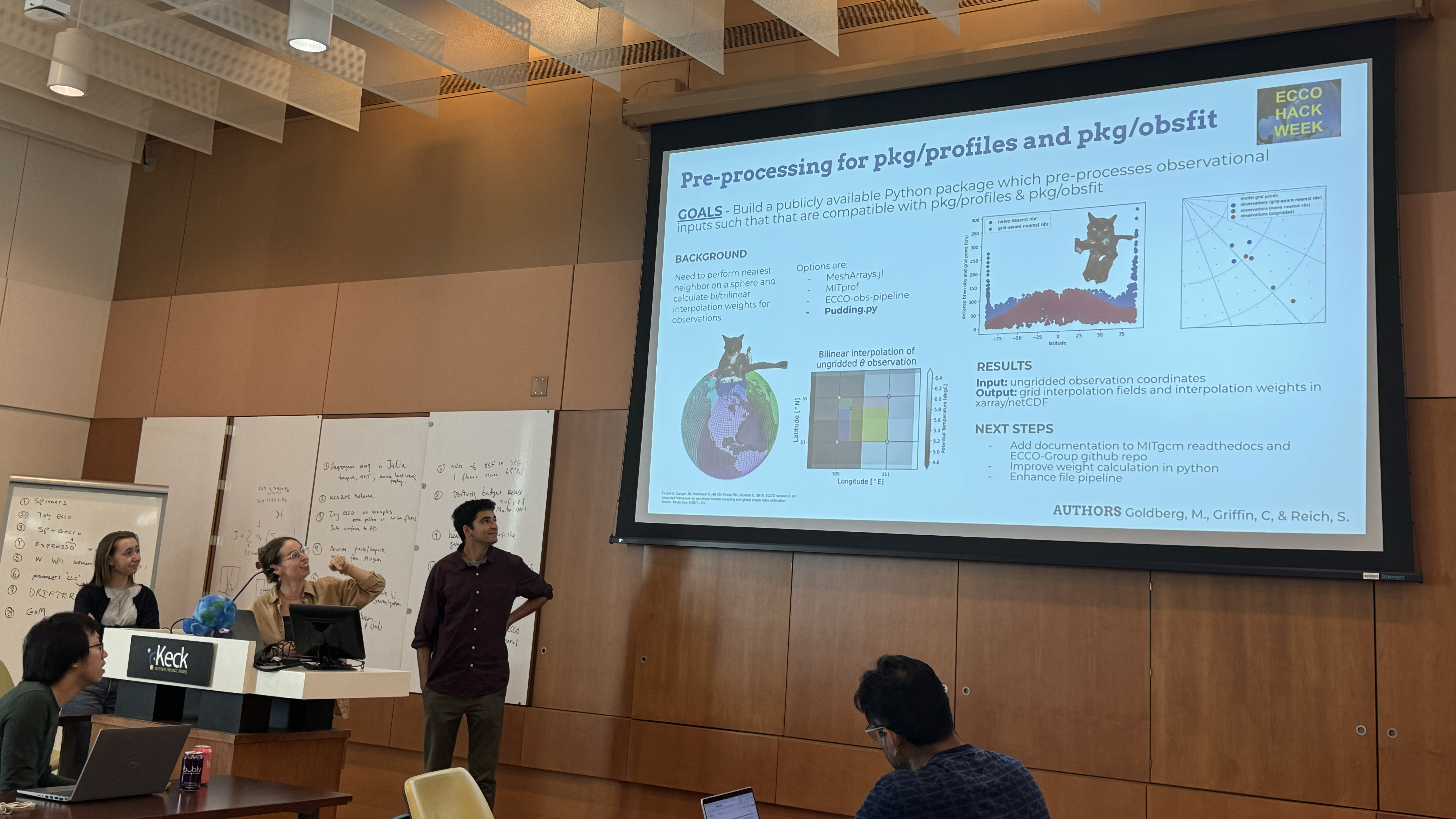
SPGecco
We focused on the Subpolar Gyre in the North Atlantic and ECCO, specifically the heat content. We put our effort into understanding the heat content in the subpolar gyre and its influences using the EMU tool that we have learned.
Project RepositoryTeam Discussion
Project Poster: EH24_SPGECCO_Poster.pdf
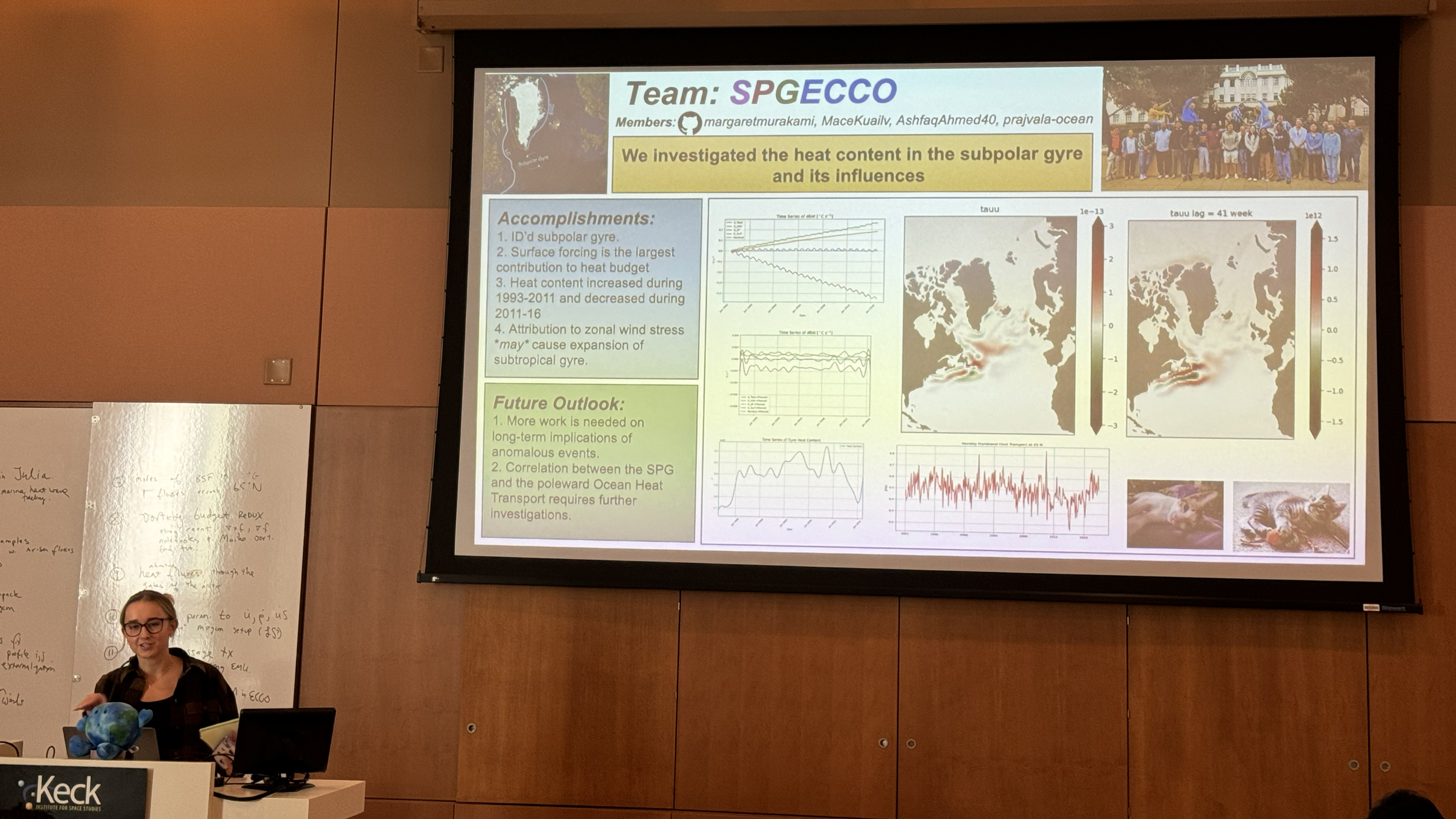
Spinners
We looked at closing the global vorticity budget using ECCO.
Project RepositoryTeam Discussion
Project Poster: EH24_Spinners_Poster.pdf
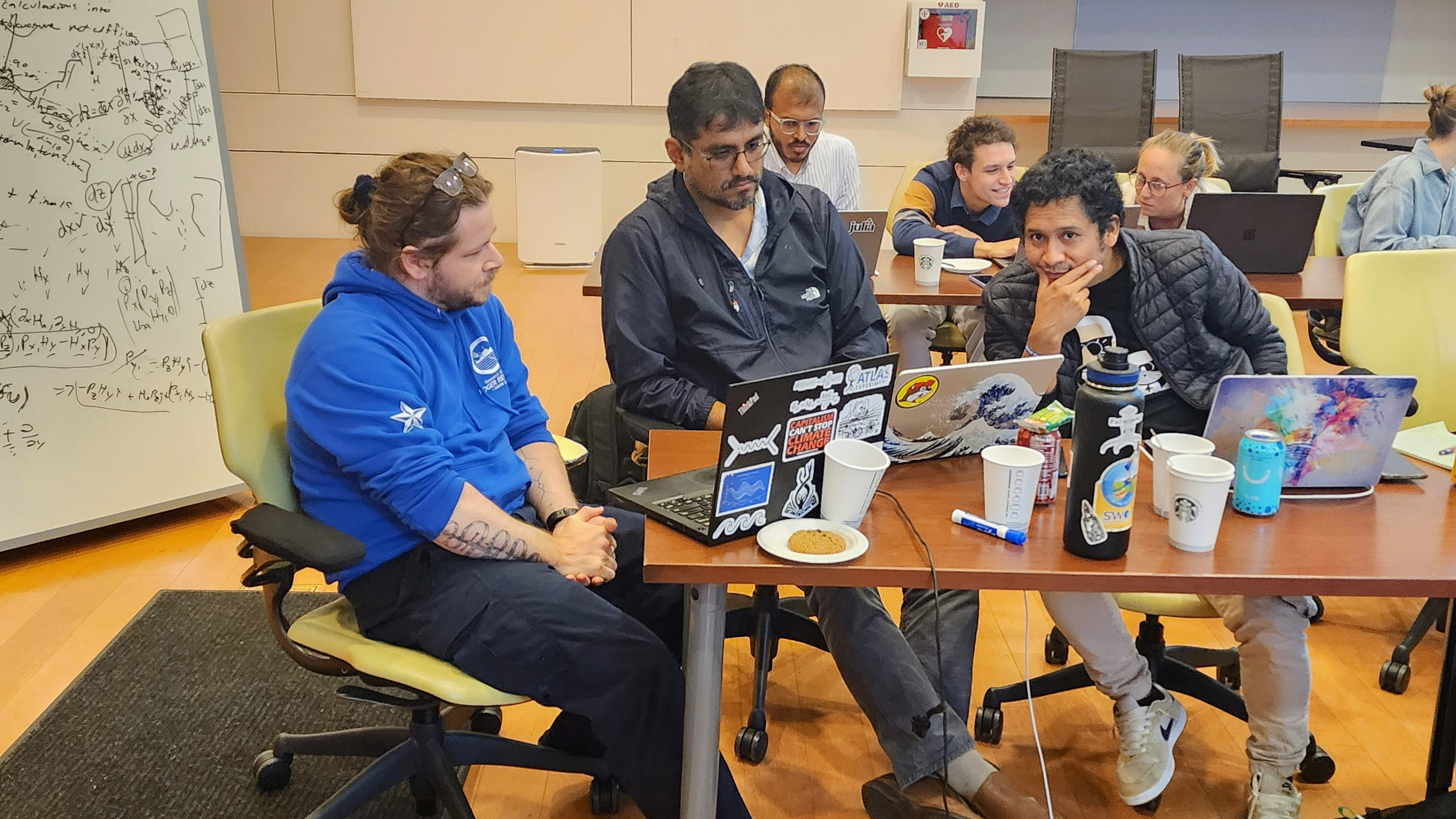
ToyECCO
Automatic Differentiation (AD) tools are hard to compare across different languages and algorithms because they all require different implementation. We worked on some basic examples with comparisons across languages (Python, Fortran, Julia) and open-source AD tools (Enzyme, PyTorch, JAX, Tapenade).
Project RepositoryTeam Discussion
Project Poster: EH24-ToyECCO_Poster.pdf
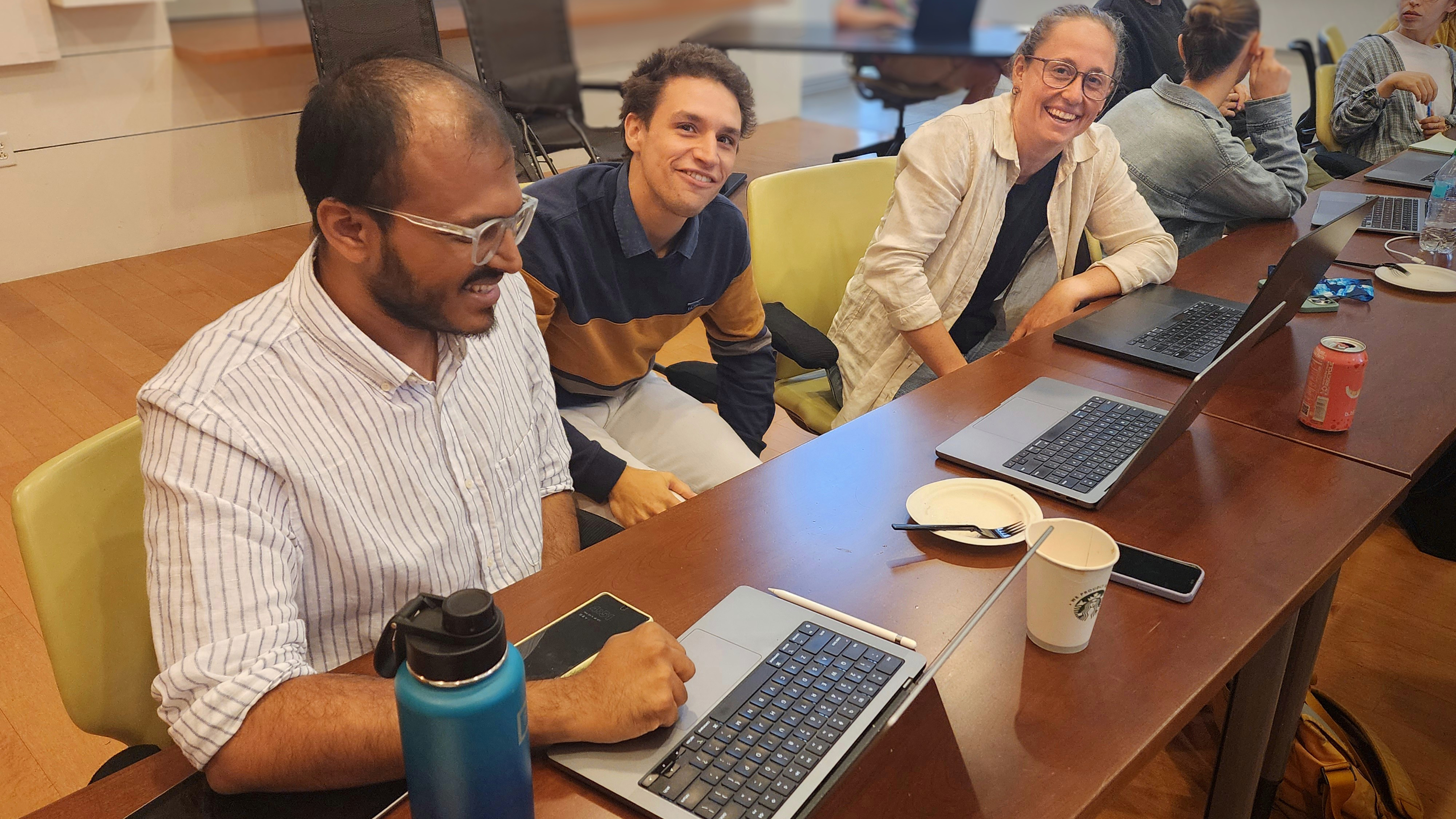
ECCO Representation of Water Masses
Understanding the consequences of Antarctic sea ice change, especially amidst recent extremes, is important for understanding global ocean circulation. We evaluate if ECCO accurately represents water masses and their volumes correctly. Specifically, we delve into Antarctic Bottom Water and its volume over time.
Project RepositoryTeam Discussion
Project Poster: EH24-WMW_Poster.pdf
